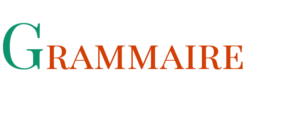When asked what it takes to speak a foreign language,...
Read MoreSince 2016, we have been constantly striving to improve the quality of our courses. Our teachers are trained in classic methods, but also in new approaches that combine efficiency and pleasure.
Above all, learning a language means developing the ability to communicate.
In our courses, we make sure that learners are able to use the language correctly and spontaneously before analyzing it.
Besides, we always start with the spoken word before moving on to reading and writing.
Grammar, vocabulary and syntax are acquired together, without any particular focus on each of these aspects.
The teaching of formal grammar, as it is generally understood, is only necessary for certain specific aspects of the written language.
Firstly, the desire to communicate is really stimulated: the topics covered are closely related to the lives of students and teachers. We don’t need dialogues or characters from textbooks – we already have a lot to talk about!
On the other hand, we care much more about the linguistic accuracy of the messages exchanged in class. We correct all mistakes without interrupting the thread of the conversation. This is one of our secrets!
According to the CEFR (Common European Framework of Reference for Languages) :
around 100 hours of learning to pass levels A1-A2
around 150/200 hours for levels B1 and B2
between 200/300 for level C1, with no limit on improvement for level C2.
It’s important to bear in mind, however, that progress in learning a language depends on individual circumstances, and we’ve chosen not to make over-hasty commercial promises.
However, we can say that :
-100 hours is equivalent to approximately one year of lessons, with 2 lessons of 90 minutes per week,
-it takes patience and discipline to learn a language
-that our objectives are in line with those of the CEFR in terms of communicative objectives,
-that all our learners pass their exams with ease.
Modern technology makes it possible to recreate a virtual classroom virtually identical to the real thing.
While nothing can replace the richness, user-friendliness and ease of real-life interaction, there are advantages to online courses. You save travel time and have digital tools at your fingertips!
Because real-life experience is better than a ton of explanations, we offer free trial lessons. If you’re ready to learn languages in a different way, come and give it a try – you won’t be disappointed!



